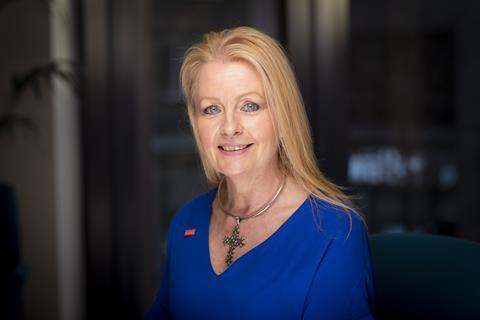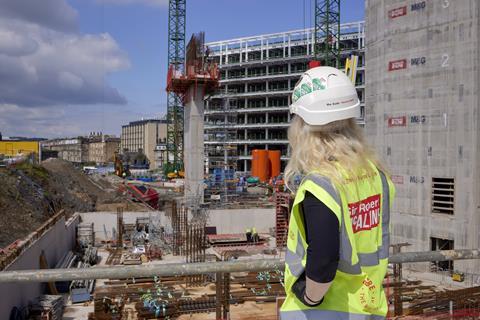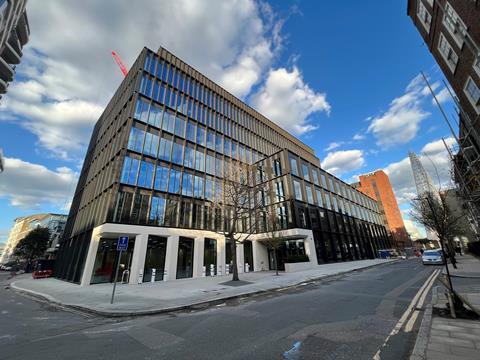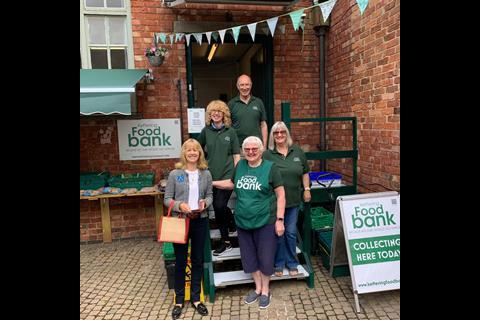ESG and social value are no longer ’nice-to-haves’ for business wanting to attract top talent, writes Karen Brookes, chief people officer at Sir Robert McAlpine
The business world is changing and construction is no exception.
Right across the globe, environmental, social and governance (ESG) considerations – perhaps once thought to be unconnected to a business’s bottom line – are now core boardroom issues. Crucially, such considerations will only grow in importance in the years ahead as climate change and structural inequality become more visible and more urgent.

For younger workers, chiefly Millennials and those drawn from Generation Z, these issues are already of intense importance and play a huge – if not decisive – role in shaping career choices.
A recent IBM survey found that 71% of employees believe environmentally sustainable companies are more attractive employers. Meanwhile, a separate study found that 47% of millennials actively look for inclusion and diversity when sizing up potential companies for work.
The message is clear: businesses that want to attract the brightest and best can no longer afford to overlook ESG or social value or see it as an optional extra. Rather, it should sit at the heart of everything they do as they look to build a business for, and of, the next generation of talent.
This matters because businesses across the world are locked in a war for talent. This is not a new development: the expression itself was coined as long ago as 1997.
A quarter of a century later, the conflict has only grown more acute. What businesses need, then, is a way to cut through, making it more important than ever that companies openly and proudly live their values and their commitment to ESG.
A purpose beyond profit
At Sir Robert McAlpine, we have heard countless stories from new recruits who joined precisely because of our values and our commitment to giving back.
As a business, we are proud to have a purpose beyond profit; and just as no-one is an island, neither is a business. We recognise the importance of making a positive, lasting impact on local communities beyond our projects. We want our legacy to stand as long as the buildings themselves.
That’s why, for instance, we have partnered with ActionFunder, a platform that makes it easy for businesses to connect with grassroots initiatives that matter to them. Since 2021, we have funded over 95 projects via ActionFunder reaching more than 70,000 beneficiaries in total.
According to Deloitte, 26% of millennials choose to work for companies where they can derive a sense of meaning from their work.
Be it programmes to help refugees get their first jobs, support individuals struggling with mental health, or provide period products to those who need them, we know that the community groups we select align with our inclusive values, and we can see the persistently positive effect we’re having as a business.

The benefits of this work are manifold and play a huge role in not just attracting, but also retaining, employees.
Of course, there’s no denying that more traditional social events will aways help build team morale, but giving individuals the opportunity to give back and find a purpose beyond day-to-day operations will create teams that last and careers that are truly rewarding.
According to Deloitte, 26% of millennials choose to work for companies where they can derive a sense of meaning from their work. I’ve had the privilege to see first-hand the morale boosting effects the opportunity to give back or work with local businesses and communities can have on employees. In fact, I’ve even seen some employees moved to tears when hearing stories from those they’ve helped. These memories will last.
Building a business for future generations
As a family-owned business established for over 150 years, longevity is at the very heart of who we are. Our recent shift to a sector-focused business model sets us up for long term success, as we continue to build Britain’s future heritage.
Looking ahead, as we take our next strategic step, we’re playing to our strengths by deepening relationships with key clients and supply chain partners, prioritising projects in sectors where we excel and where we can provide insightful support, create value, and leave a lasting, positive legacy for communities.

At the Forge, for instance, working closely with long-standing client LandSec, we’ve been able to explore innovative methods for efficiency, quality, and sustainability that have really changed the face of construction. The building, which recently opened for business in south London, is the UK’s first commercial development to have been designed in line with the UK Green Building Council’s definition of a net zero building.
Equally, by moving from a regional to a sectoral model we give individuals the opportunity to bring their expertise to bear on a greater array of projects, right across the country, creating more rewarding and fulfilling career paths, as well as greater value for clients.
By nurturing an inclusive family culture, and working closely with clients, supply chain partners and consultants, we can, together, drive positive change within the sector. Ours is, after all, a sector that does some fantastic work, but also has its challenges, such as the mental health crisis and the lack of diversity and inclusion.
We are committed to driving positive change as a company, be it through flexible working or our unwavering support for equality, diversity and inclusion, but it’s only by working together that we can create an industry that is truly fit for future generations and the next 150 years.
Karen Brookes is the chief people officer at Sir Robert McAlpine




























No comments yet